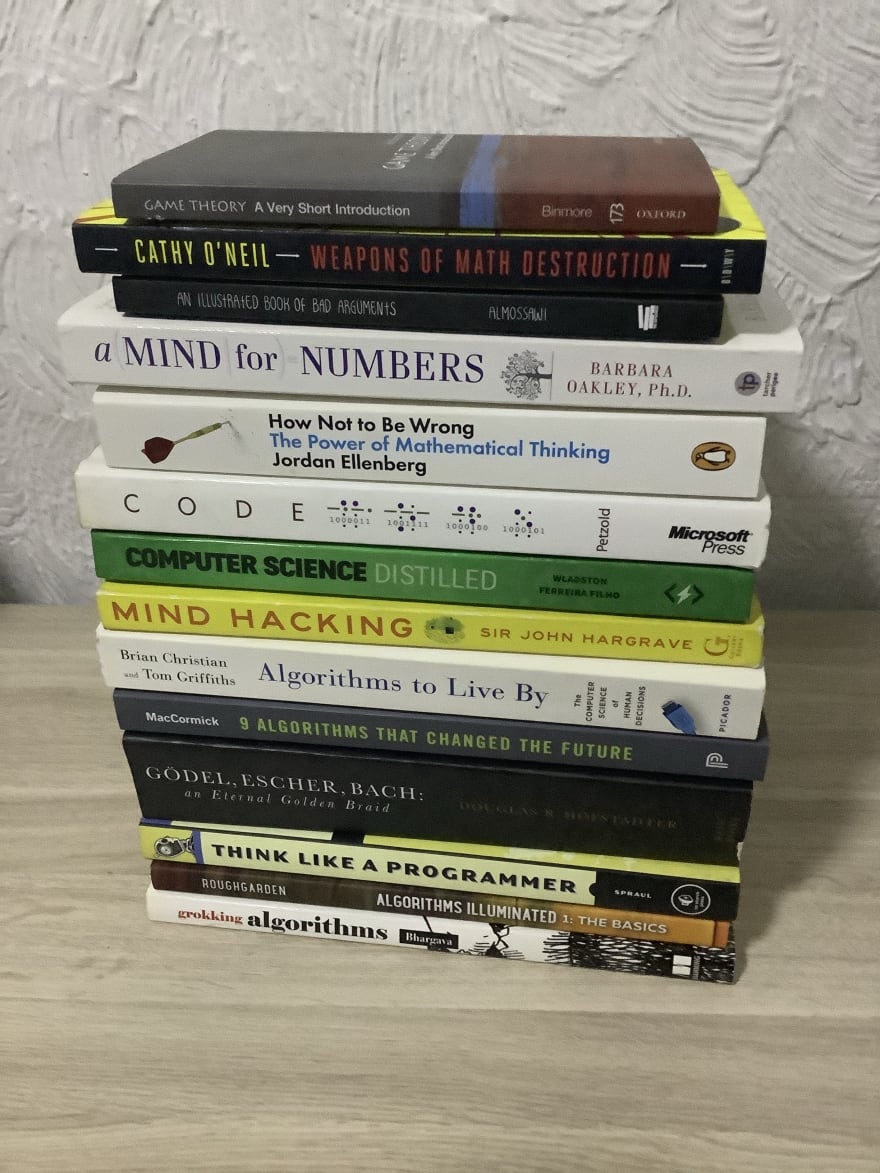I started reading Math/Algorithms casual books (not strictly technical) 2 years ago -actually when I joined EPAM- and there are some things that have changed since then:
- First of all, since I'm Spanish native speaker and all the books I read were in English I raised my English level. So if you struggle with your English as I did I highly recommend you to read in English.
- I excelled my interviews as technical recruiter.
- My logic changed, this was funny since even taking an elevator made me thought about the sorting algorithm behind it.
- Found math is everywhere and even when I make a decision.
My first book was "Grokking Algorithms: An Illustrated Guide for Programmers and Other Curious People" by Aidtya Bhargava, I was not a programmer but definitely I was "other curious people", this book is technical, yes, but it is not really complicated, actually it explains recursion with boxes and coding is in python kind of easy to understand. It also gives a first approach sorting algorithms and then it gets scary -at least for me greedy algorithms are complicated, something that can be seen as complicated and messy was explained with drawings. As a first approach is easy before reading "Introduction to algorithms" by Thomas H Cormen, Charles E Leiserson, Ronald L Rivest and Clifford Stein or or "Algorithms" by Robert Sedgewick and Kevin Wayne, for me is just the red Algorithms book.
I was running the success trail when another friend recommended me to read "Algorithms to Live by: The Computer Science of Human Decisions" by Brian Christian and Tom Griffiths, since I'm a recruiter it was fun to realize that such book started with a something called "The secretary problem" that teaches you about a mathematical rule -named leap-then-leap- to make decisions, you can have many options, but, what's the best? Turns out that there's a 37% rule that explains -with tons of formulas- that no matter what, you will have 37% success rate. This book got me thinking about Google is not famous as a searching engine, is famous because of his sorting methods.
I was curious and I was eager to read more and more, and I found a book from a Microsoft lover guy named "Code" by Charles Petzold were I understood more about computing. I had no expectations about that book but it helped me understand better computers. It caught my attention immediately, because it explains code, not programming languages, not algorithms... CODE!
So every time I interview a software engineer, it’s important for me to see if they recognize some books, either technical or non-technical. Why? First of all, to measure their passion about IT world and second of all because even when we have automated many aspects of our lives reading books is still a great way to learn.
Thanks for reading! This is my first post I hope you can join me on my next book reviews.
Regards,
Special thanks to Sandra Rivera who helped me editing this post.







Top comments (4)
Wow, I'm a software developer and I didn't know about some titles, definitely, you would be an excellent developer ( or you can be) :) I've read another Algorithms books and some others about coding or architecture. Now I'm going to start with your recommendations. Thank you! (y)
I appreciate really much every single word, you motivated me a lot.
I was impressed by the fact you were reading Thomas Cormen book. Kudos!
I would suggest you to take a look at Robert C Martin clean code series, they are light and really interesting too.
Regards
n.n Thanks! I have just read some parts of Cormen, not all the book.
I'll definitely read Clean Code, thanks for your suggestion!